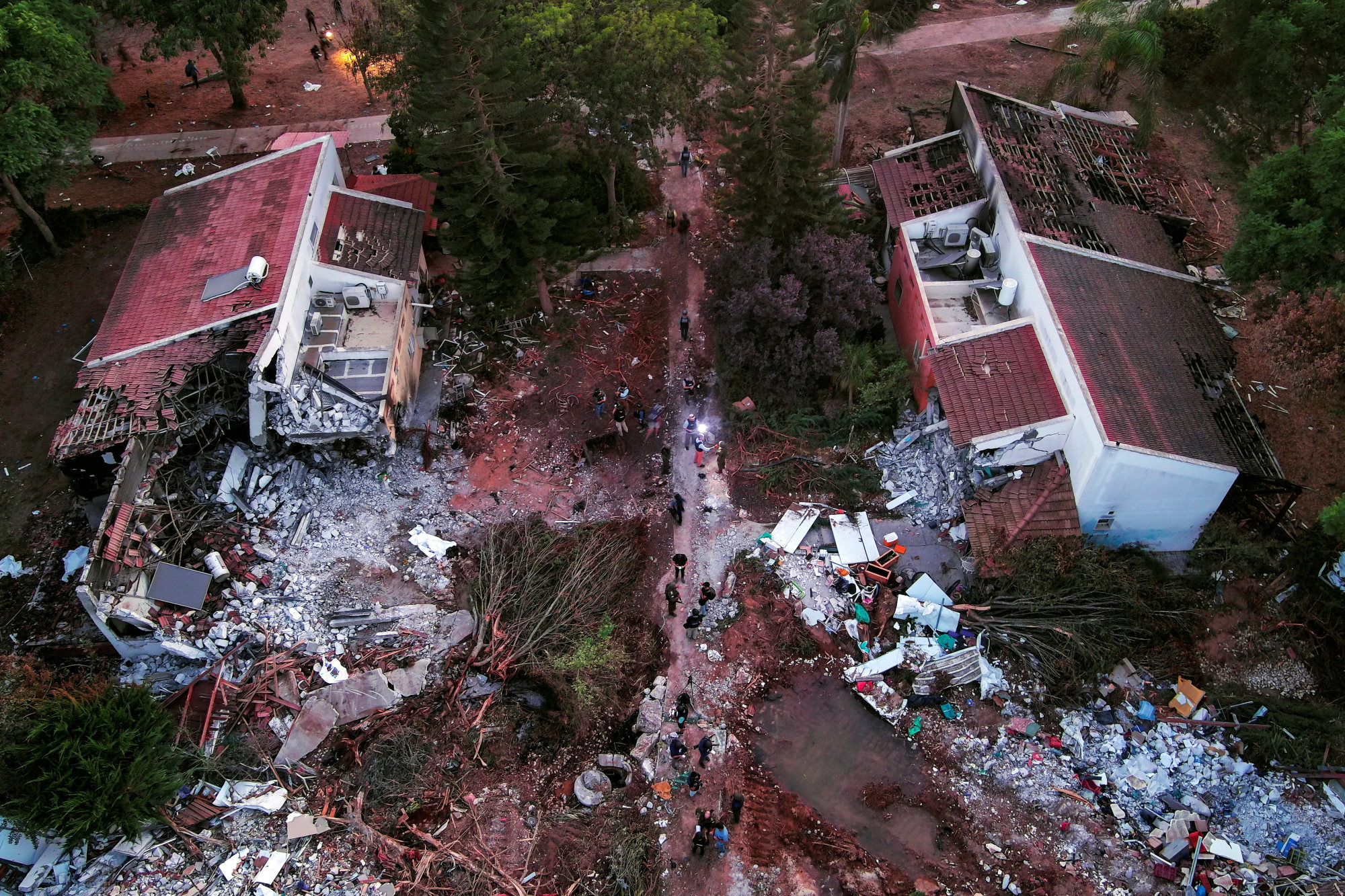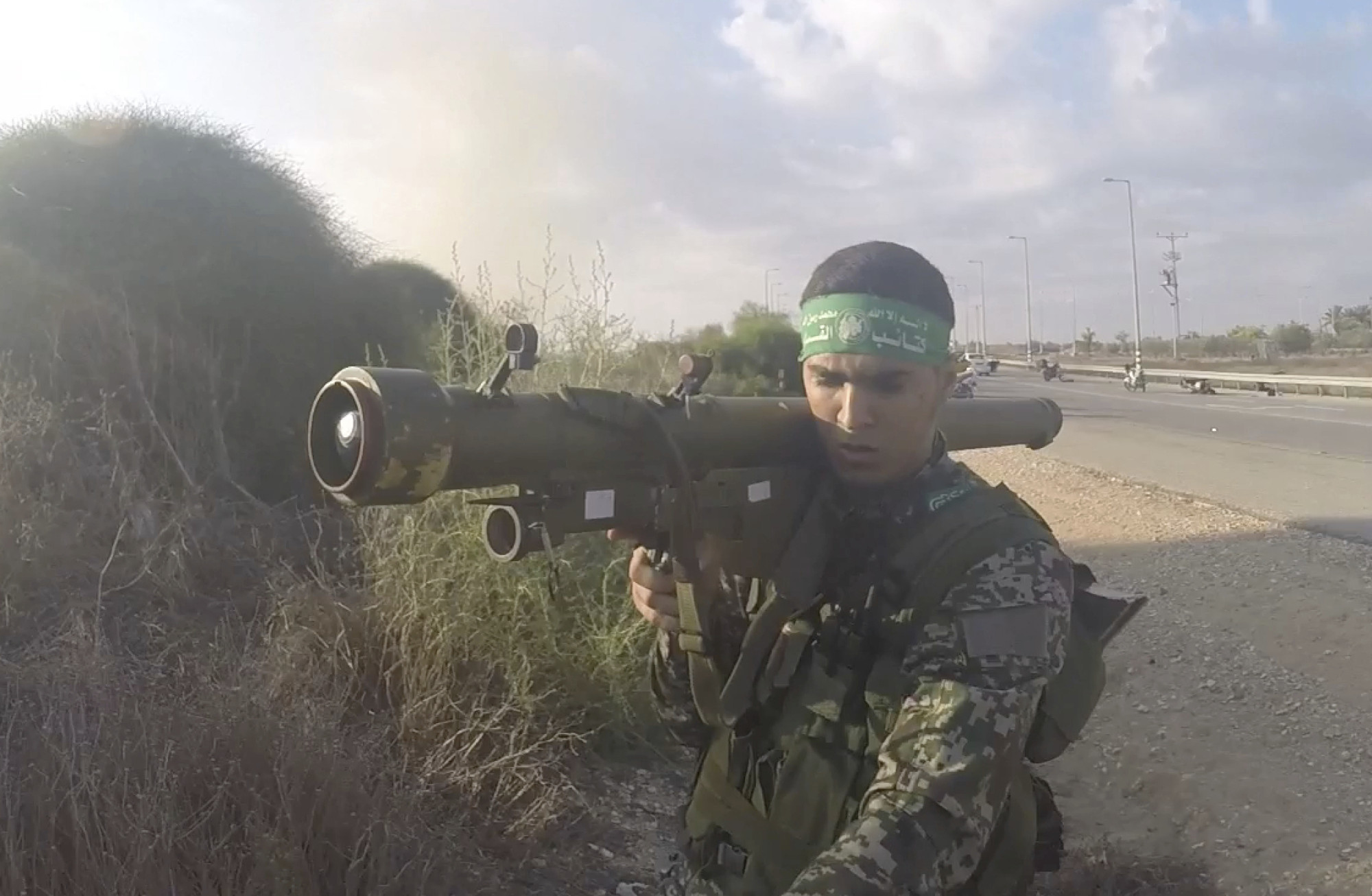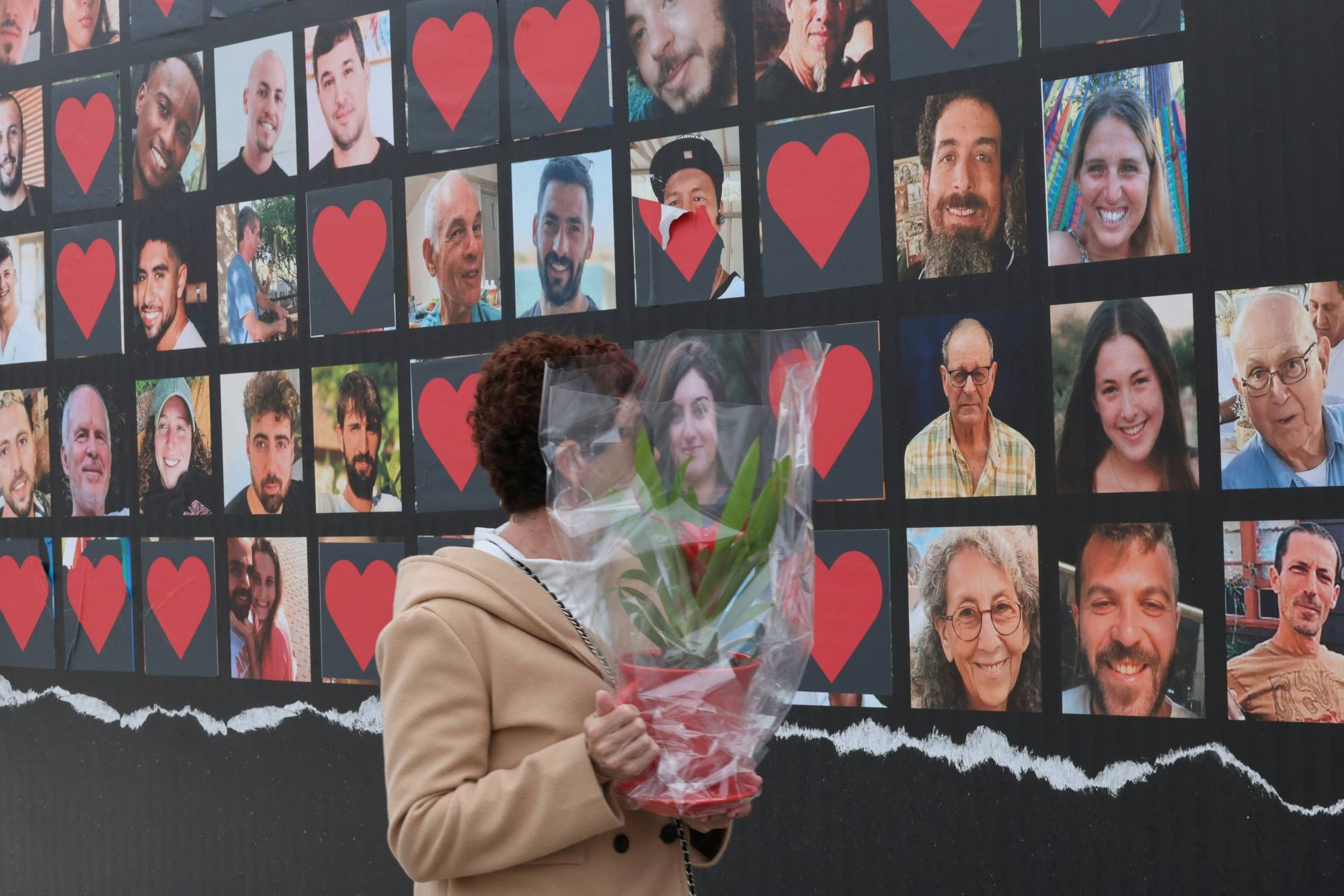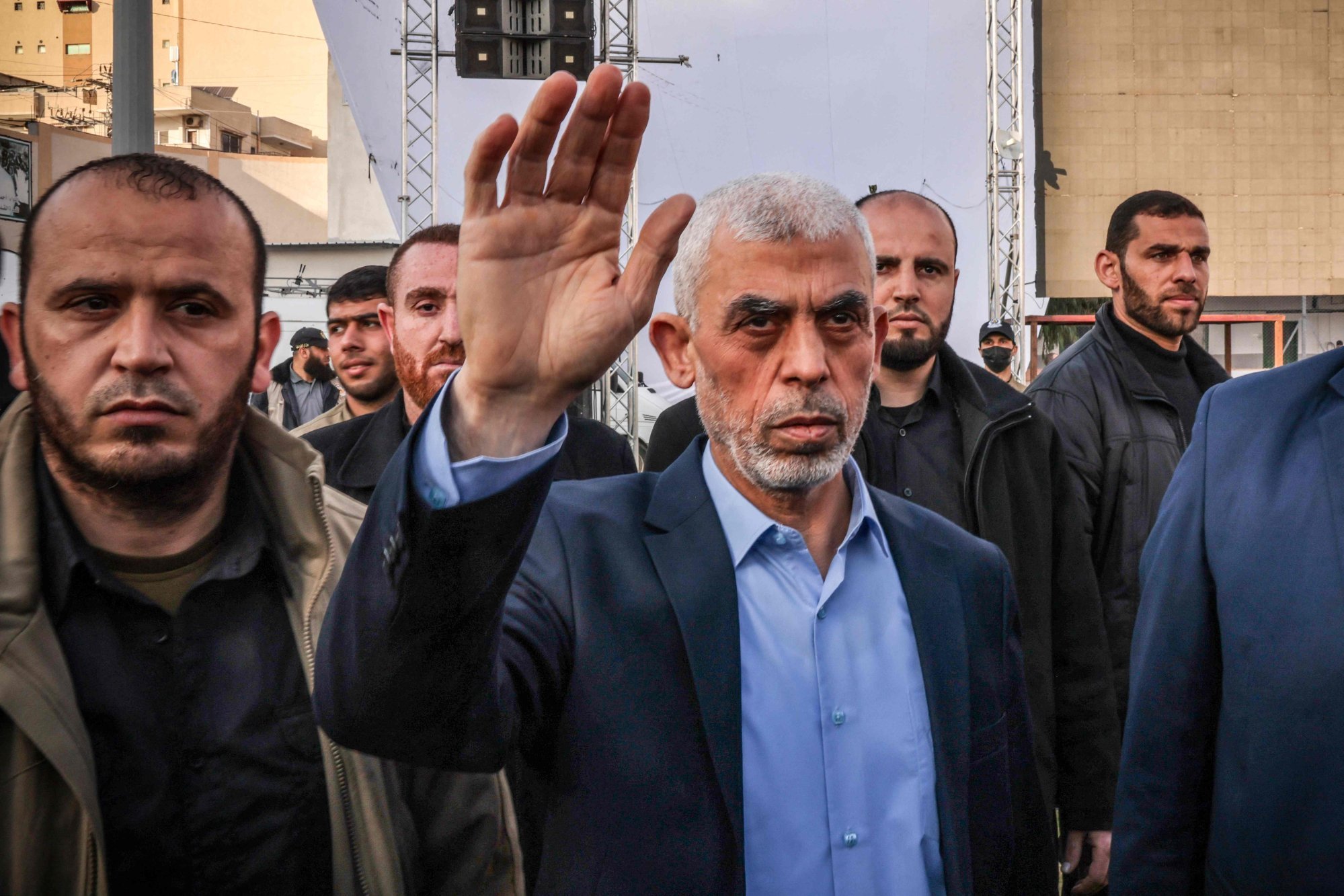Since October 7, when thousands of Hamas operatives swarmed into southern Israel in a spree of killing, raping and kidnapping – spurring Israel to launch a punishing war in Gaza – Israelis have been talking about whether to put the hundreds of fighters captured on trial in a similar fashion, especially their leaders.

The prospect of such a set of trials is daunting from numerous perspectives: should it be domestic or international? Did enough evidence survive? Can individuals be linked to specific crimes? If those caught are minor players, is the spectacle worth it?
There’s also a more complex matter. The world’s view in 1961 of the tiny, struggling state of Israel and of the menace of Nazism is a far cry from how it sees today’s rich, nuclear-powered Jewish state pummeling Gaza and the Islamist Palestinian movement of Hamas.
Brazil-Israel row escalates after Lula’s Holocaust remarks
Brazil-Israel row escalates after Lula’s Holocaust remarks
With many abroad sympathetic to the Palestinian cause, whatever lesson Israel hopes to teach may not go as planned.
Those accused of terrorism in Israel are normally tried in West Bank military courts or through regular criminal proceedings.
The brutality of the October attack has prompted calls for a special court and the revival of the death penalty. It has also underlined a divide between those concerned with upholding human rights and rule of law and those who believe fighting terrorism should be prioritised.
In a paper submitted to the Knesset, Talia Einhorn, a long-standing scholar of international law who favours a special military tribunal, argued that exceptional times demand exceptional responses. “The terrorists, who invaded the sovereign state of Israel, committed atrocities of a type and scale the Jewish people had not experienced since the Holocaust,” she wrote.
Because few lawyers will agree to work for the defendants and will need high-level security clearance, she proposed that they be assigned from within the military.
Another paper calling for a military procedure, from the Begin Institute for Law and Zionism, invoked the Nuremberg military court set up by the Allies to try top Nazis and the Guantanamo Bay trials held after the September 11 attacks in the US as possible models.

How the captured Hamas fighters will face justice will ultimately be decided by the government and attorney general, and the Justice Ministry has convened a committee to examine the options. A ministry spokesman declined to comment on the proceedings.
Simcha Rothman is chair of the Knesset subcommittee examining the question. In an interview in his Jerusalem office, he said he’s inclined to skip a trial and declare the militants unlawful or unprivileged combatants. Under the laws of war, he said, such combatants don’t deserve due process, and can be locked away for long periods.
Israel says will fight during Ramadan unless Hamas frees Gaza hostages
Israel says will fight during Ramadan unless Hamas frees Gaza hostages
“A trial could take years and take our attention away from where it belongs – figuring out how to deal with terrorists before they do such a thing again,” said Rothman, who is from the far-right Religious Zionist party. He has introduced a bill to prevent the public defender’s office from taking part in any such trial.
“Why should we pay for their defence?” he asked, adding, “I wouldn’t impose this on any public defender.”
Others say that Israel’s criminal laws are sufficient, and that defendants can and must be provided with good legal counsel.
Yoav Sapir, who used to be Israel’s chief public defender and now teaches criminal law at Tel Aviv University, disagrees with Rohman.

He opposes the idea of labelling all suspects unlawful combatants and locking them up indefinitely. Giving defendants a fair and serious criminal trial that respects due process will not only uphold justice but will be good for Israel, he said.
“We need to protect our existence as a state committed to the rule of law,” he said. “When a state experiences such a tragedy, it is often the case that it gives up on some core values, and we want to be wary of that.”
Another consideration for prosecutors has to do with the availability of evidence linking individuals to crimes. Things were chaotic on October 7, with battles under way for hours. Later, the focus was on identifying and burying the dead rather than treating the area like a crime scene.
While a fair amount of material has been gleaned from the GoPro cameras and confessions of Hamas attackers, as well as from survivors’ mobile phones, evidentiary requirements are high in criminal cases, and prosecutors could have a difficult time linking individuals to specific acts.
At a recent conference on the topic, Ruth Halperin-Kaddari, a professor of law at Bar Ilan University, said the vast majority of women raped on October 7 were killed, and none who survived are willing to speak. No forensic tests were done in real time.
“It won’t be possible to connect a specific terrorist with a specific body,” she said.
Sapir believes this problem could be addressed by sorting suspects into groups based on where they carried out attacks and trying them under a legal doctrine known as “joint perpetration”.
Under that theory, he explained, if someone was part of a group whose common purpose was to invade a community and kill people, the law doesn’t require knowing who pulled the trigger.
The former chief public defender also stressed the importance of ensuring that the fighters are given robust legal representation.
‘Last bastion’: Israel’s 6-week drive to hit Hamas and scale back Gaza war
‘Last bastion’: Israel’s 6-week drive to hit Hamas and scale back Gaza war
“When I was in office, we defended rapists, murderers and terrorists,” he said, noting that some of the accused may also reject assistance from public defenders.
Should no Israeli lawyers agree to take on their cases, defendants should be allowed assistance from foreign lawyers, he said. There is precedent for this, he added: Eichmann had a German lawyer.
Some Israeli specialists such as Raz Nizri have also raised the possibility of bringing genocide charges against Hamas leadership. Under Israeli law, this is one of the few means by which the death penalty could be applied.

With Israel facing its own charges of genocide at the International Court of Justice in The Hague for its war in Gaza, however, others have countered that this isn’t a good idea.
“Israel’s position is that genocide is something exceptional that happened in World War II and a few other times,” Sapir said. “Do we suddenly want to endorse a broad interpretation of genocide? I don’t think so.”
Now in its fifth month, Israel’s war against Hamas has killed more than 29,000 Palestinians in Gaza, according to the Hamas-run health ministry. Israel says more than a third of those were fighters.
Hamas, which is considered a terrorist organisation by the US and European Union, doesn’t distinguish between civilians and combatants.
Israeli security forces haven’t revealed much about the detainees in order to keep Hamas in the dark. It’s unknown, for example, how many fighters are being held, and whether any major commanders are among them.
What is clear is that the group’s chief in Gaza, Yahya Sinwar, and its military leader Mohammed Deif, are still at large.
From Israel’s perspective, the International Criminal Court might be the best forum for trying such top-level figures, as it would put them in league with Serbia’s Slobodan Milosevic and others accused of masterminding atrocities.
But Rothman, the legislator, says that a great deal will depend on how the military operation ends – and no decision can be made until then.
“We know the importance of the Eichmann trial,” he said. “If we capture Sinwar, we would want a certain kind of trial. But if we only get men who stood guard, it’s not the same.”

